DUI Stops – Did the Police Act Legally?
Law enforcement officials must have a legitimate reason to pull over a vehicle. Officials often will pull over a vehicle if they believe that the operator of the vehicle may be driving under the influence (DUI). A DUI offense can be damaging for the operator of the vehicle, as the consequences of a DUI conviction can be damaging to an individual.
However, law enforcement cannot just pull over a vehicle based on a hunch, or because they racially profile the driver. They must have a good reason, what the law calls individualized suspicion, to pull over the vehicle. An experienced criminal defense attorney, such as Nashville-based attorney Philip Clark, may be able to contest the legality of the stop and effectively combat the DUI criminal charges that you are facing.
The Fourth Amendment
The Fourth Amendment to the United States Constitution prohibits unreasonable searches and seizures by government officials. The Fourth Amendment applies to vehicle stops. See State v. Troxel, 78 S.W.3d 866 (Tenn. 2002). This means that an unreasonable stop of your vehicle by the police can violate the Fourth Amendment. If the police violate the Fourth Amendment, then the fruits of that unlawful stop —— the evidence that the police obtain from the stop – must be suppressed or excluded from the prosecution’s case. This is known as the exclusionary rule. See Mapp v. Ohio, 367 U.S. 643 (1961). U.S. Supreme Court Justice Tom Clark explained the impact of this rule in the famous case of Mapp v. Ohio, writing: “The criminal goes free, if he must, but it is the law that sets him free. Nothing can destroy a government more quickly than its failure to observe its own laws, or worse, its disregard of the charter of its own existence.” Mapp v. Ohio, 367 U.S. 643 (1961).
What this means is that the government must have justification – a form of individualized suspicion known as probable cause or reasonable suspicion – in order to pull over your vehicle (see State v. Smith, 21 S.W.3d 251 (Tenn. Crim. App. 1999).). This is because, as a driver, you still retain some reasonable expectation of privacy. The Tennessee Court of Criminal Appeals has explained that this expectation of privacy is not as great as you have in your home, but you still retain privacy rights in your vehicle. State v. Smith, 21 S.W.3d 251 (Tenn. Crim. App. 1999). The bottom line is that the police must have specific and articulable facts that you are operating your vehicle improperly or under the influence to pull the vehicle over. If your vehicle is weaving from lane to lane on a highway, then the police will be able to justify the stop of your vehicle.
Article I, Section 7 of the Tennessee Constitution
As individuals in Tennessee, we not only possess individual rights under the United States Constitution but also the Tennessee Constitution. Article I, Section 7 of the Tennessee Constitution provides at least as much protection as the Fourth Amendment. In fact, the Tennessee Supreme Court has the power to grant even more protection from unreasonable searches and seizures under the Tennessee Constitution than the U.S. Supreme Court has done in interpreting the U.S. Constitution. State v. Randolph, 74 S.W.3d 330 (Tenn. 1992). The Tennessee Supreme Court has explained: “But state supreme courts, interpreting state constitutional provisions, may impose higher standards and stronger protections than those set by the federal constitution.” State v. Randolph, 74 S.W.3d at 334-35.
The Need for an Experienced Criminal Defense Attorney
An experienced criminal defense attorney like Philip Clark can assert your rights under the Fourth Amendment of the U.S. Constitution and Article I, Section 7 of the Tennessee Constitution. He may be able to challenge the legality of the police’s stop of your vehicle.Philip Clark not only has years of experience as an attorney but also he worked for many years as a police officer. He knows the ins and outs of traffic stops. He knows when the police have exceeded their lawful authority. He will defend your constitutional rights to the best of his ability. If you face DUI charges, contact attorney Philip Clark at (615) 678-1033 or e-mail him at philip@tncriminaldefenseattorney.com.
Connect with Philip N. Clark right away!
(615) 785-2000

